…the more unlived your life, the greater your death anxiety.
IRVIN D. YALOMNever take away anything if you have nothing better to offer
More Irvin D. Yalom Quotes
-





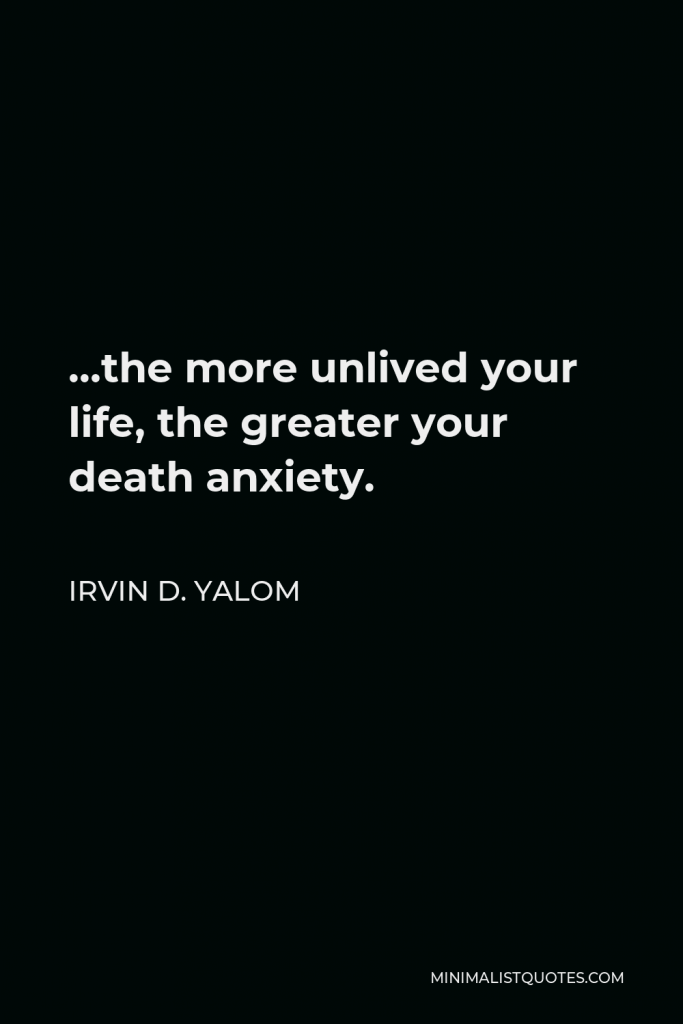

-





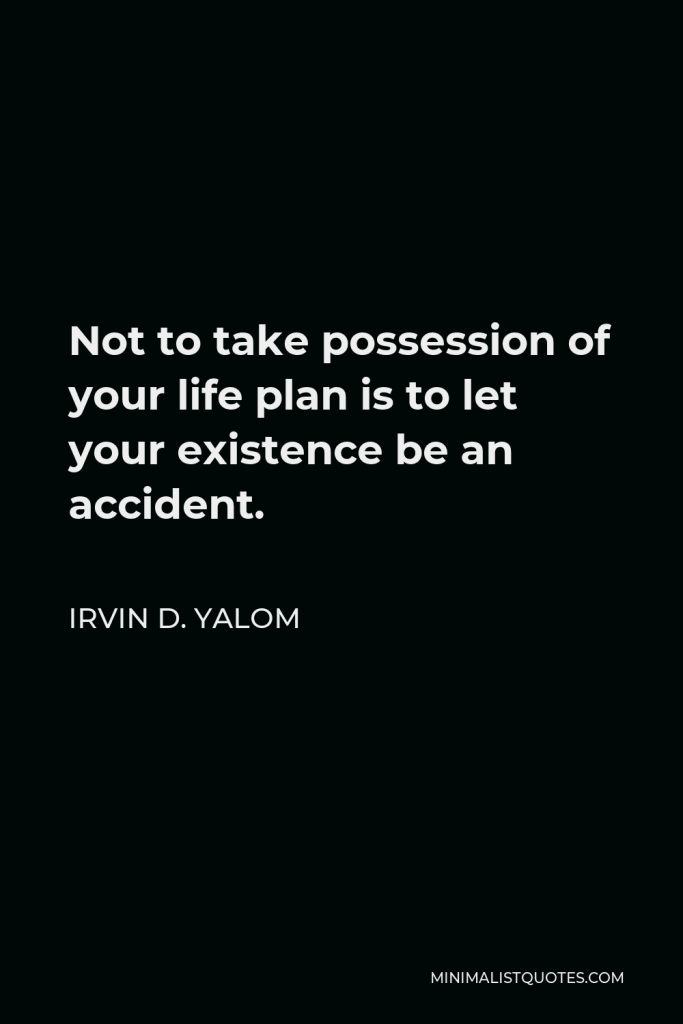

Not to take possession of your life plan is to let your existence be an accident.
IRVIN D. YALOM -





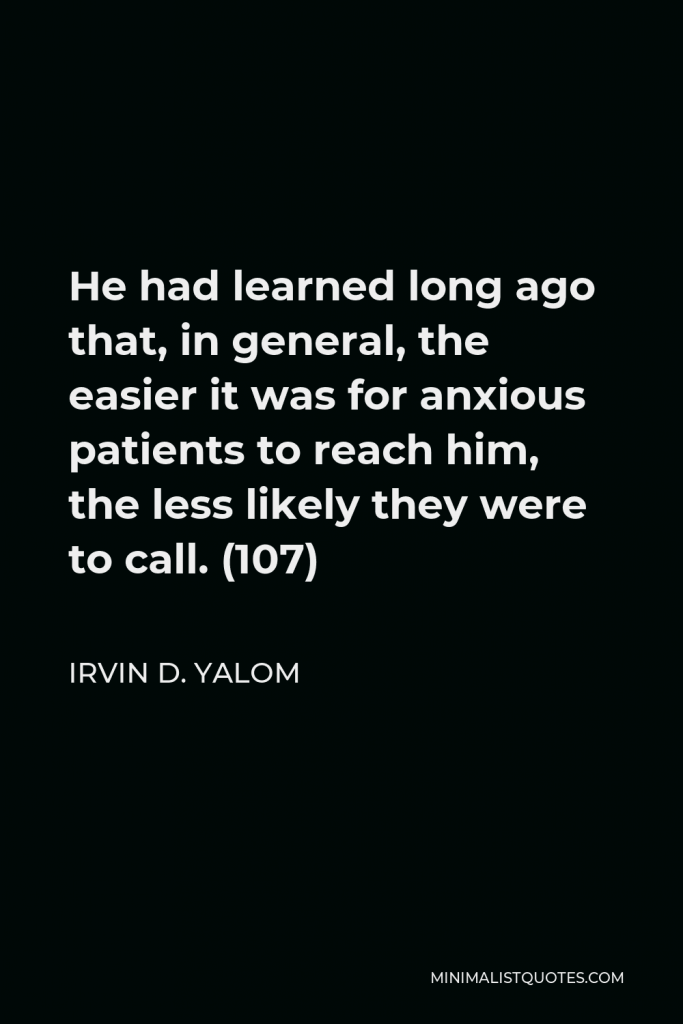

He had learned long ago that, in general, the easier it was for anxious patients to reach him, the less likely they were to call. (107)
IRVIN D. YALOM -





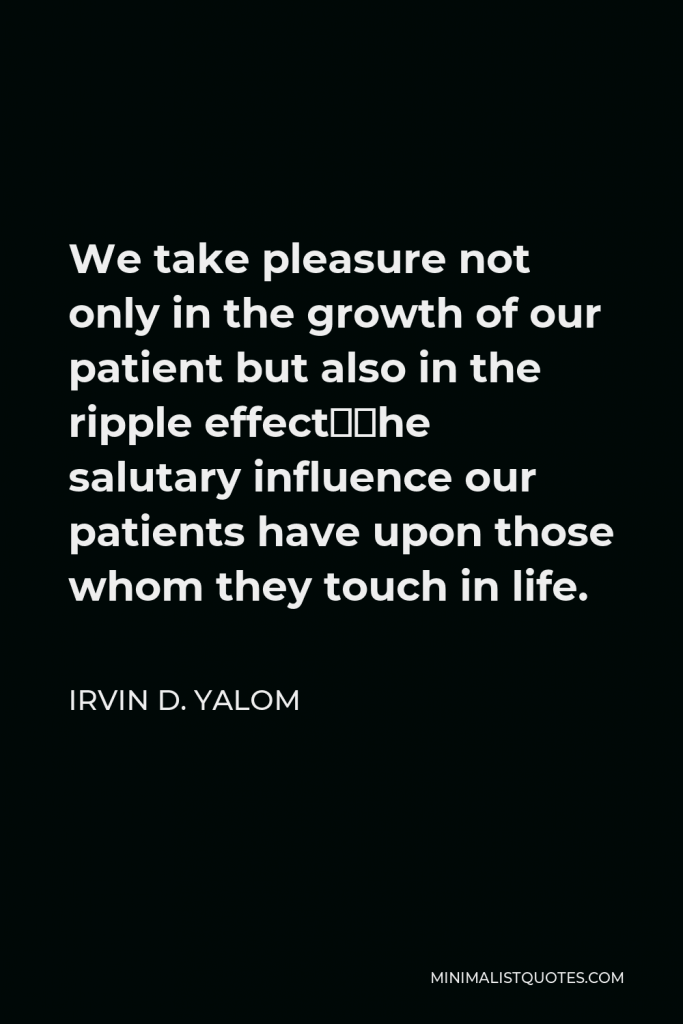

We take pleasure not only in the growth of our patient but also in the ripple effect—the salutary influence our patients have upon those whom they touch in life.
IRVIN D. YALOM -





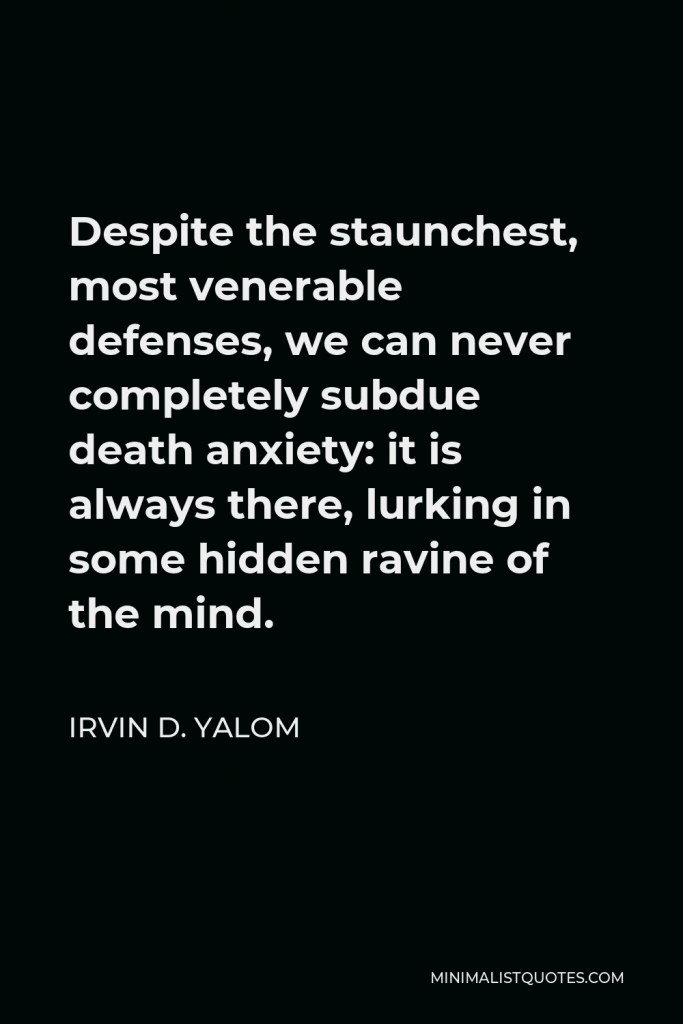

Despite the staunchest, most venerable defenses, we can never completely subdue death anxiety: it is always there, lurking in some hidden ravine of the mind.
IRVIN D. YALOM -





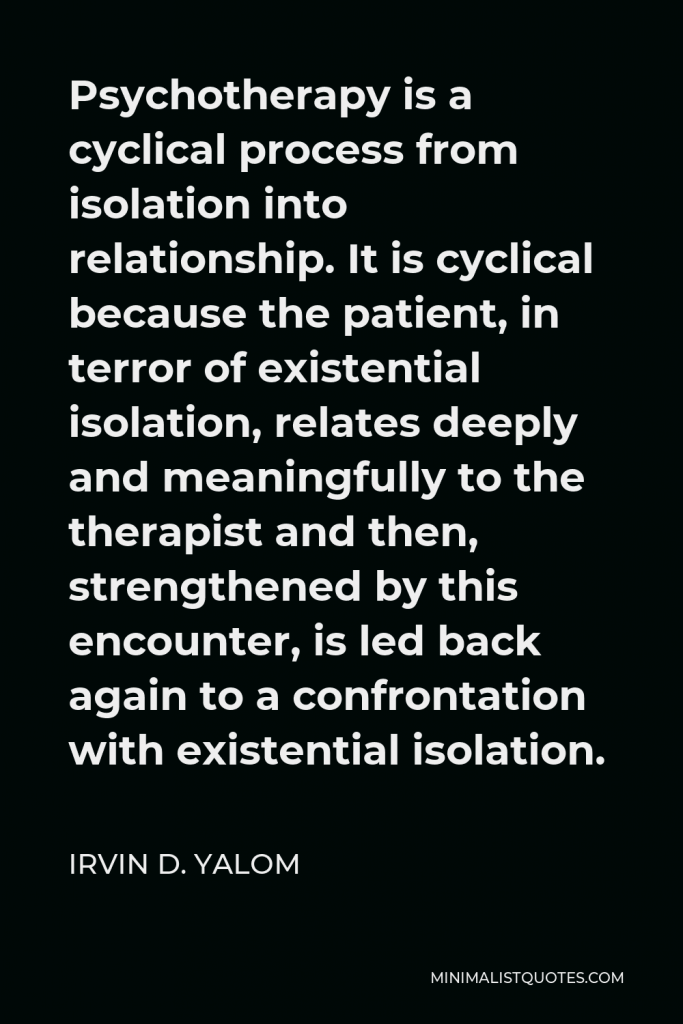

Psychotherapy is a cyclical process from isolation into relationship. It is cyclical because the patient, in terror of existential isolation, relates deeply and meaningfully to the therapist and then, strengthened by this encounter, is led back again to a confrontation with existential isolation.
IRVIN D. YALOM -





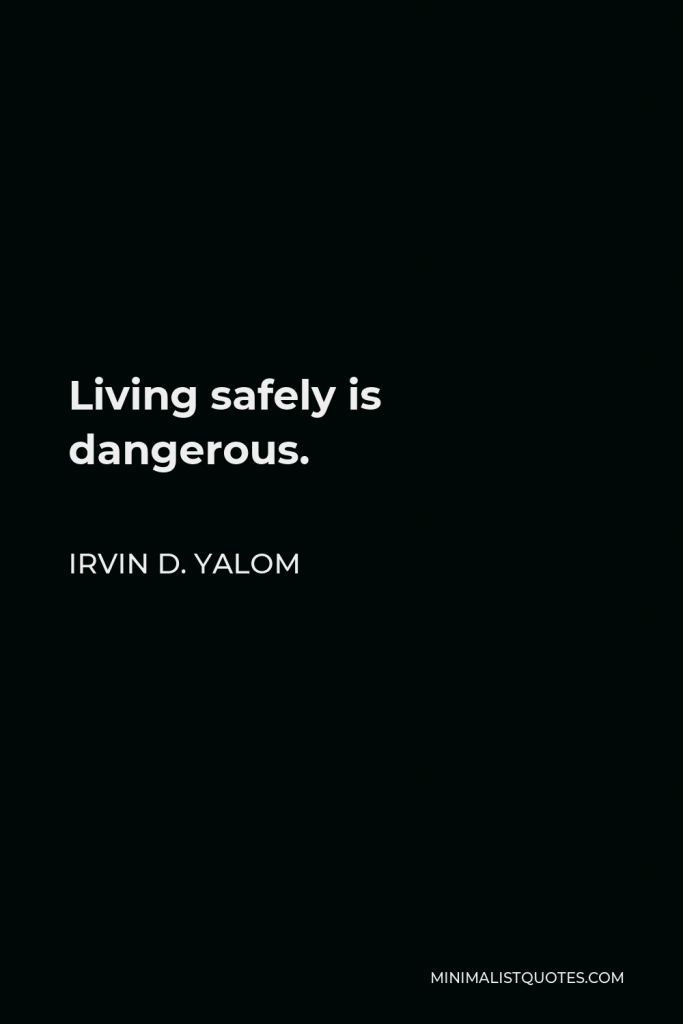

Living safely is dangerous.
IRVIN D. YALOM -





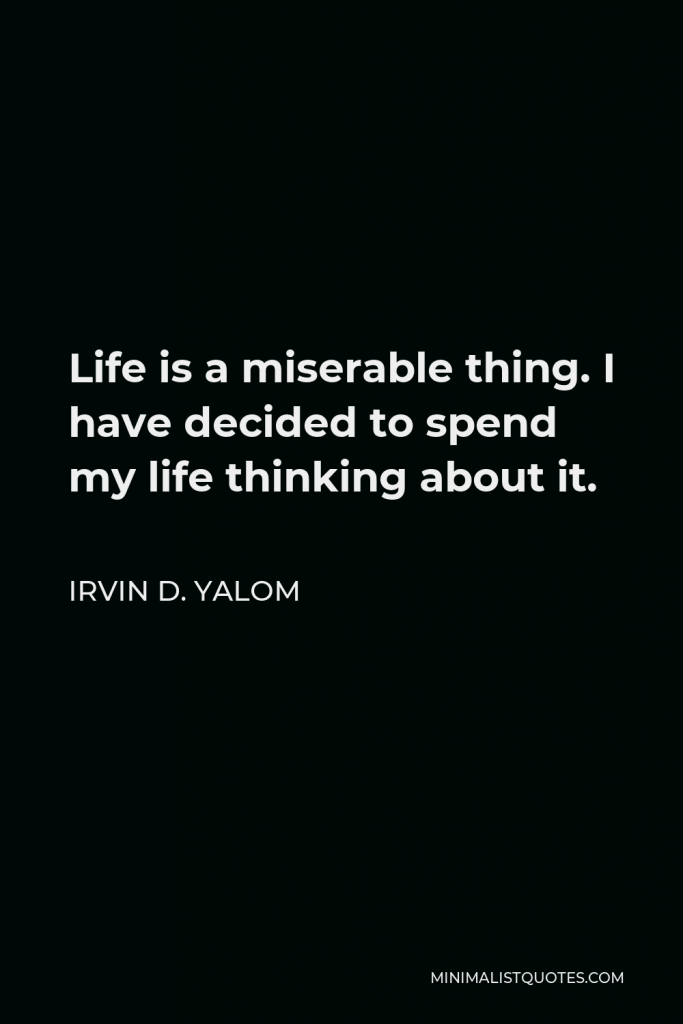

Life is a miserable thing. I have decided to spend my life thinking about it.
IRVIN D. YALOM -





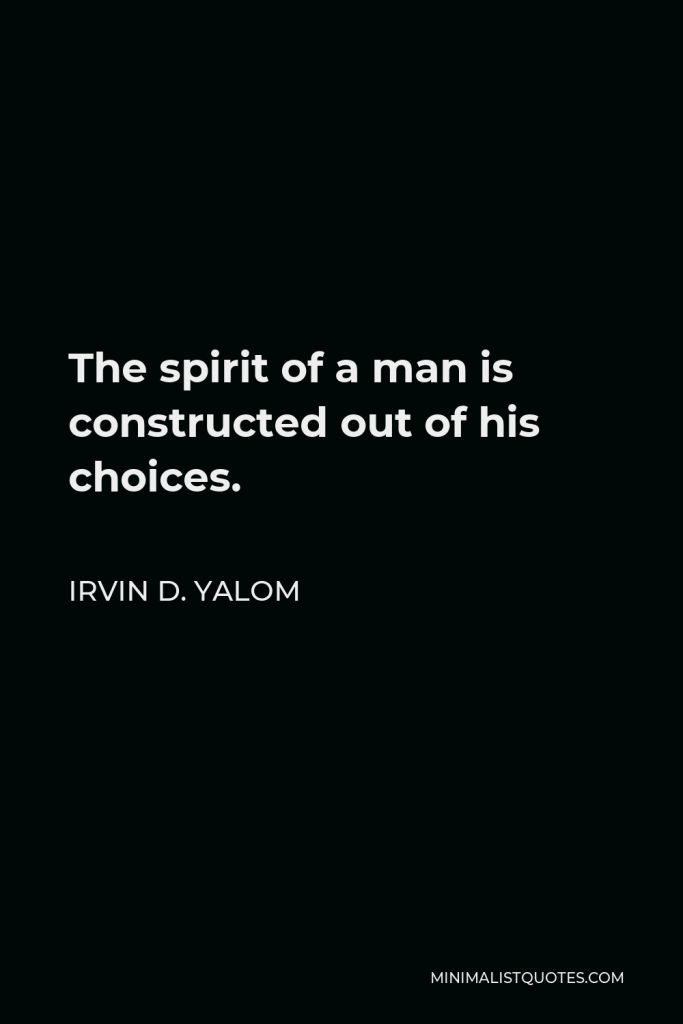

The spirit of a man is constructed out of his choices.
IRVIN D. YALOM -





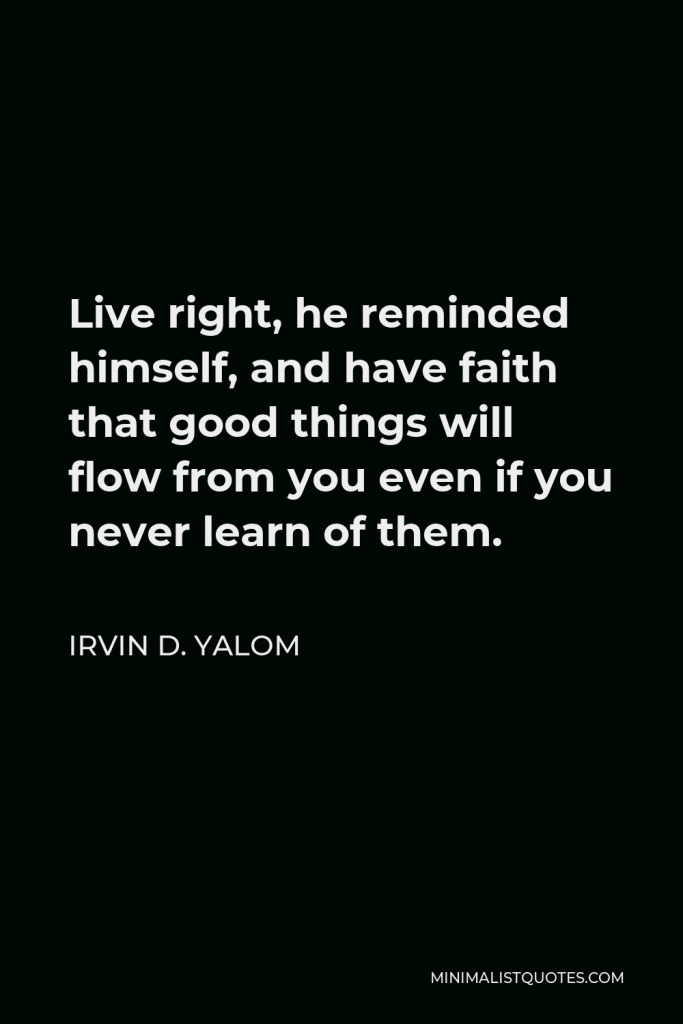

Live right, he reminded himself, and have faith that good things will flow from you even if you never learn of them.
IRVIN D. YALOM -





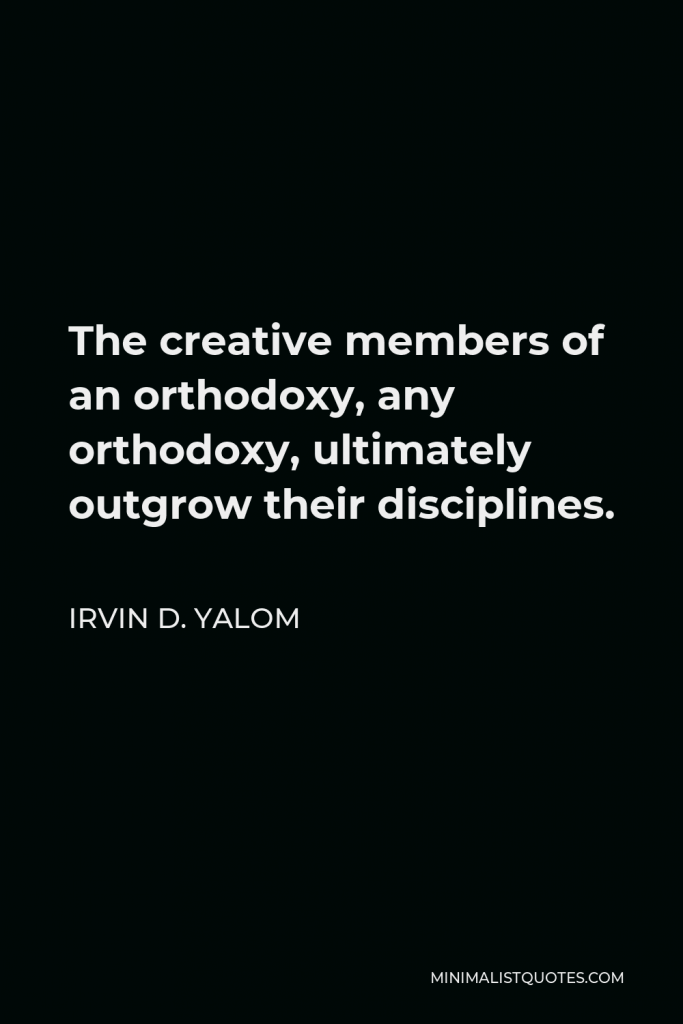

The creative members of an orthodoxy, any orthodoxy, ultimately outgrow their disciplines.
IRVIN D. YALOM -





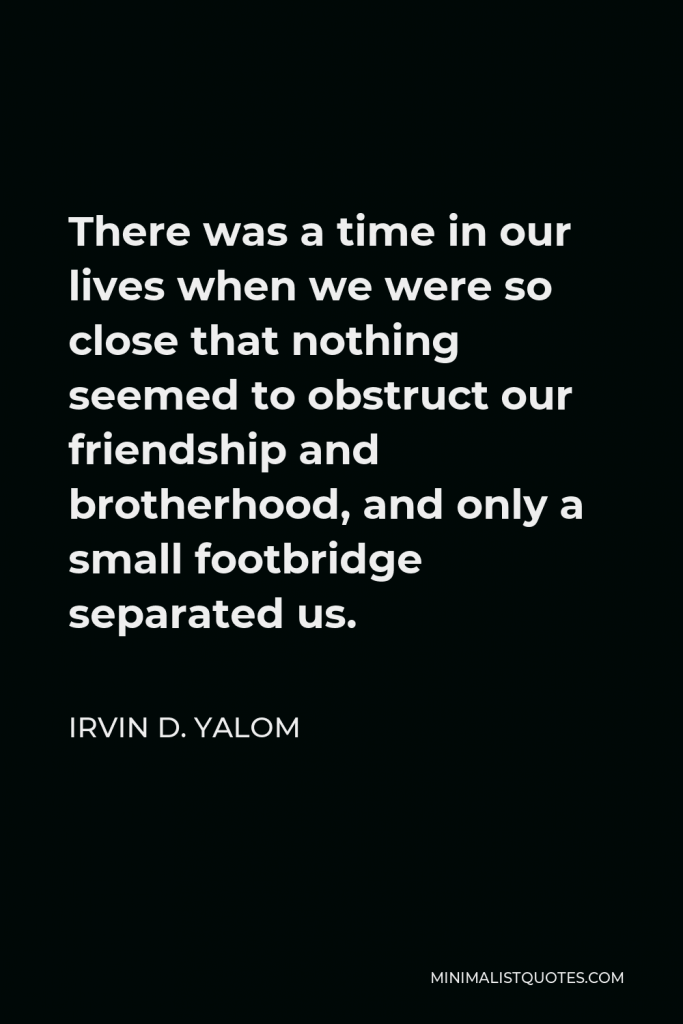

There was a time in our lives when we were so close that nothing seemed to obstruct our friendship and brotherhood, and only a small footbridge separated us.
IRVIN D. YALOM -





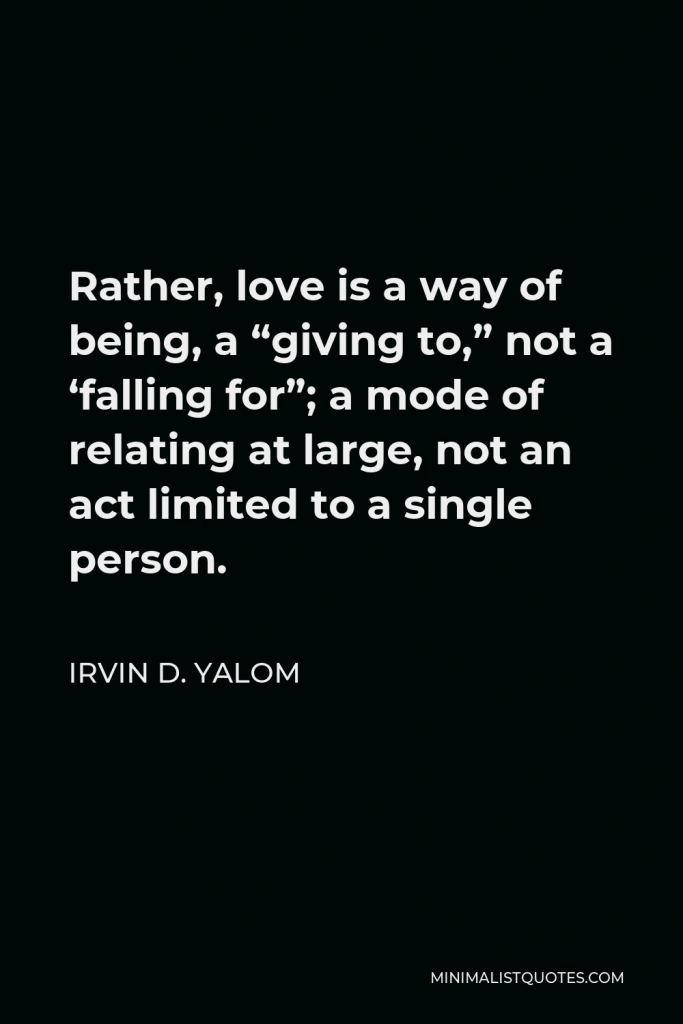

Rather, love is a way of being, a “giving to,” not a ‘falling for”; a mode of relating at large, not an act limited to a single person.
IRVIN D. YALOM -





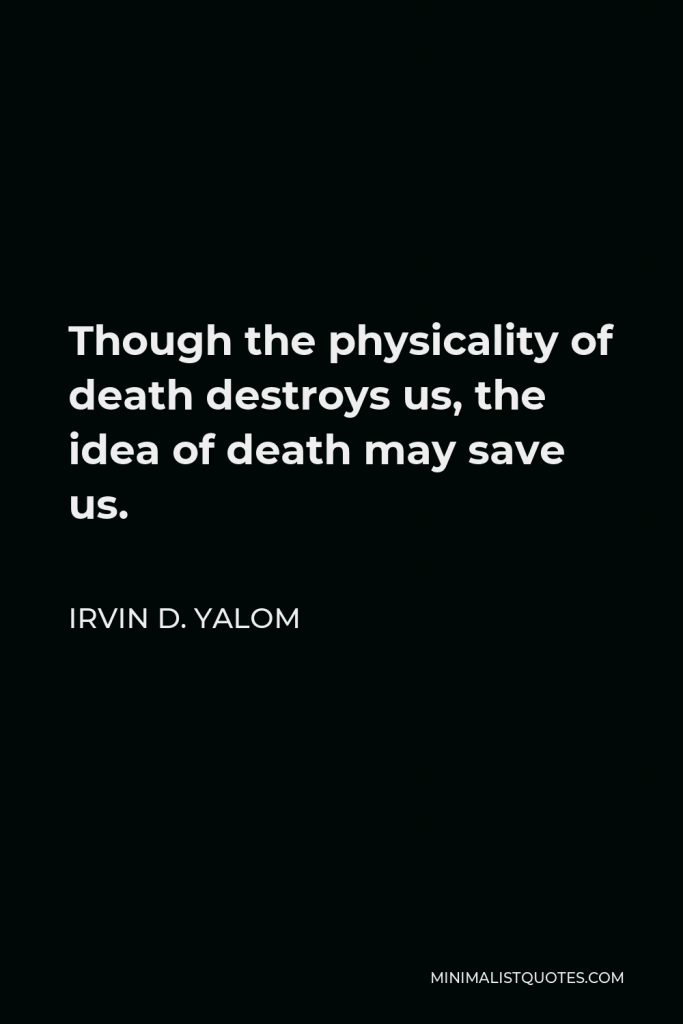

Though the physicality of death destroys us, the idea of death may save us.
IRVIN D. YALOM -





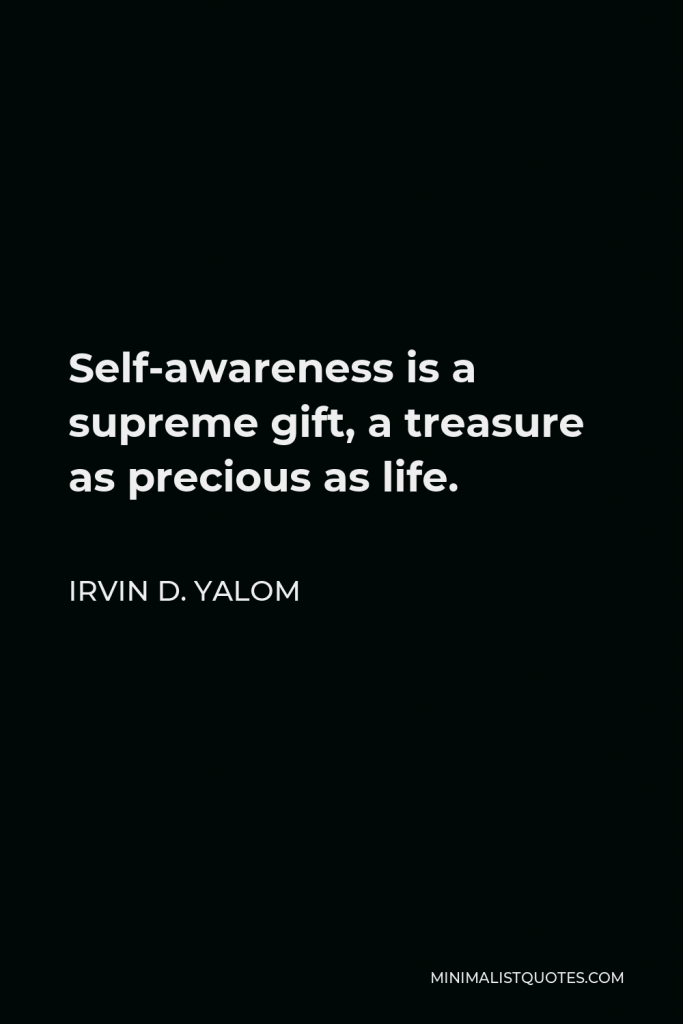

Self-awareness is a supreme gift, a treasure as precious as life.
IRVIN D. YALOM -





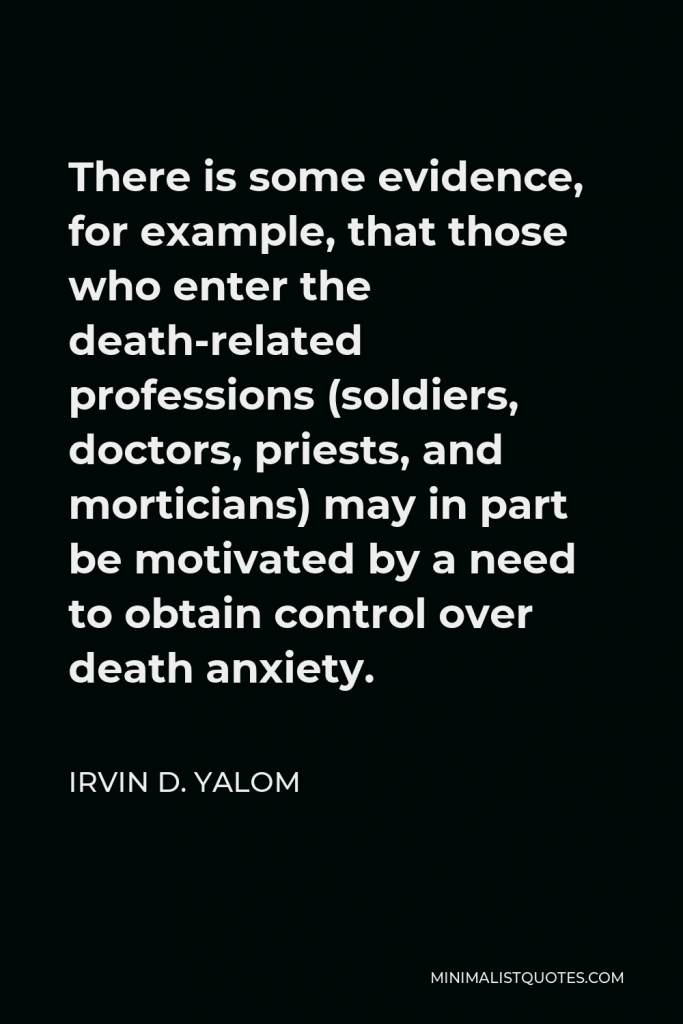

There is some evidence, for example, that those who enter the death-related professions (soldiers, doctors, priests, and morticians) may in part be motivated by a need to obtain control over death anxiety.
IRVIN D. YALOM







